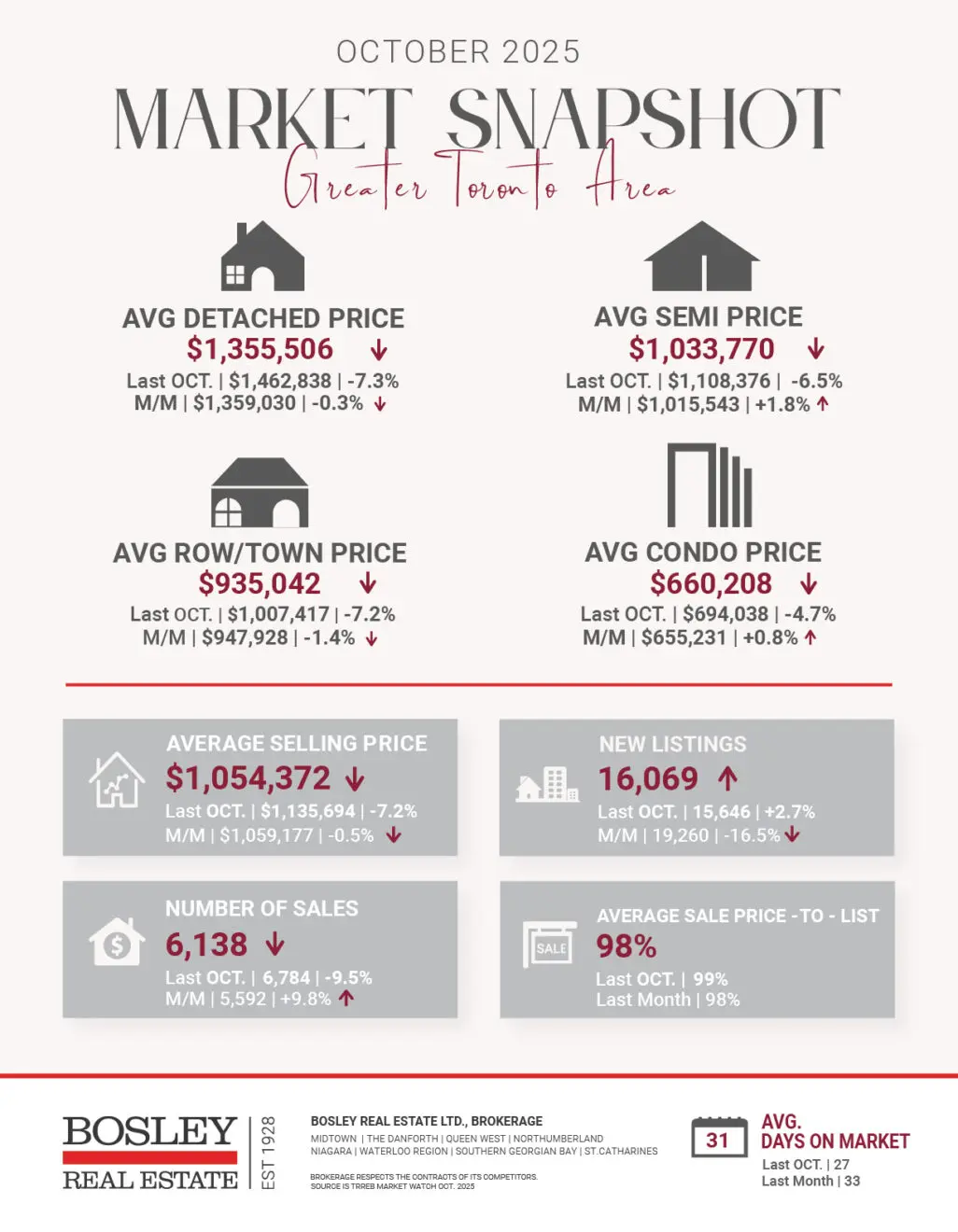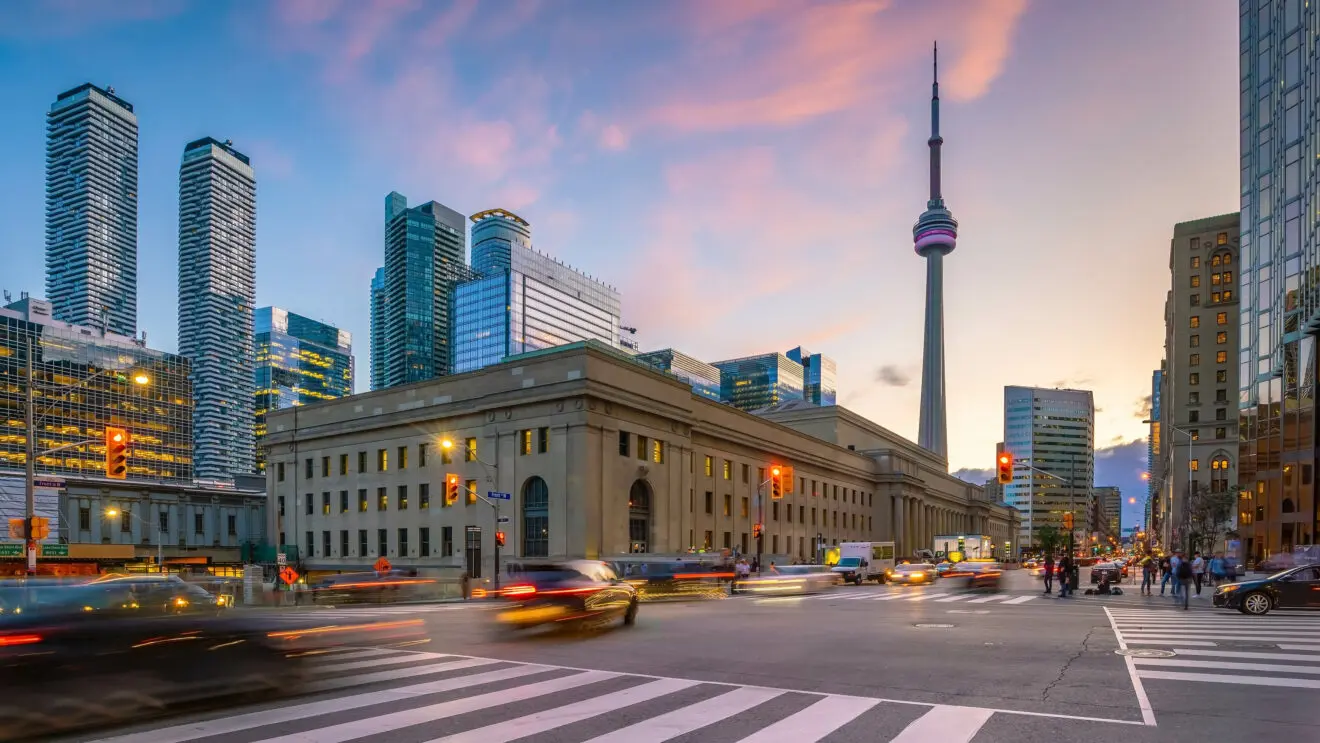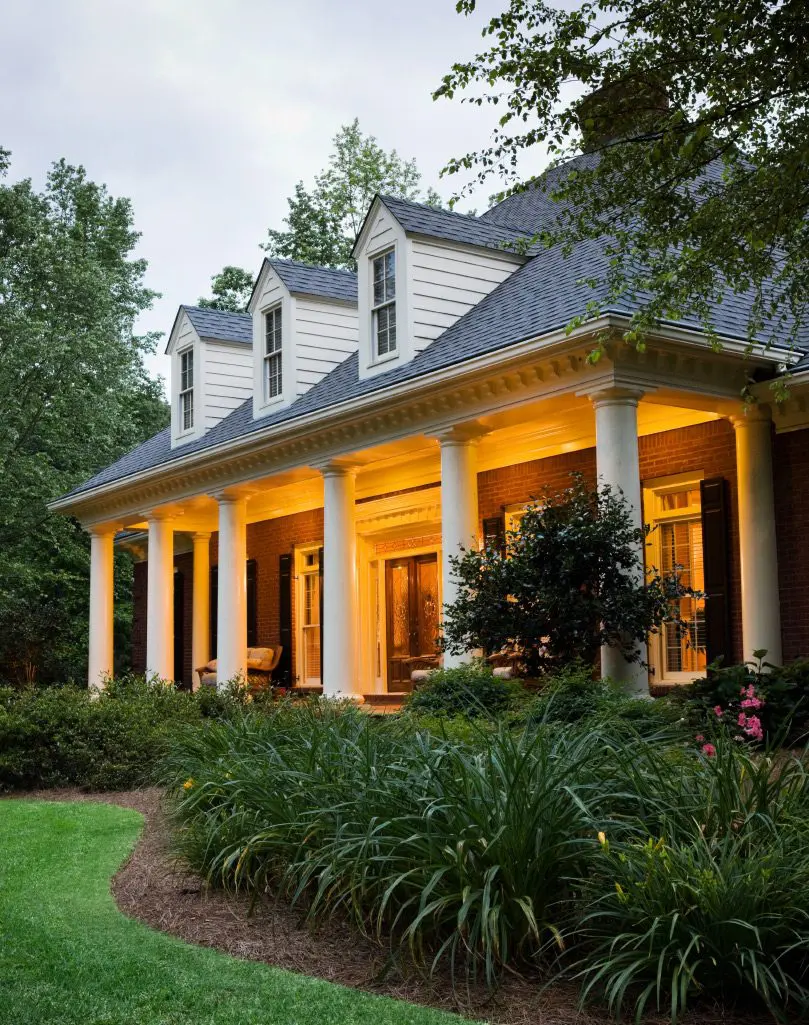


oronto rents have dropped to a 40-month low after 21 consecutive months of annual declines — reaching their lowest point since the summer of 2022.
The average monthly rent for a unit in Canada’s largest city slipped 3.5 per cent in October compared to a year earlier, landing at $2,551, according to the latest National Rent Report from Rentals.ca and Urbanation.
Despite Toronto remaining among the priciest cities in the country — behind Vancouver and Oakville — rents declined at a faster pace than the national average, which was down 2.2 per cent to $2,105.
Two-bedroom apartments in Toronto saw the sharpest drop among major Canadian cities, falling more than seven per cent year over year to $2,890. One-bedroom units dipped 5.7 per cent to $2,210, while three-bedrooms were down 4.6 per cent to $3,492.
How Toronto Rents Have Been Falling

“The figure for two-bedroom units lines up closely with other big cities like Calgary and Vancouver,” says Rentals.ca spokesperson Giacomo Ladas.
Ladas notes that during the pandemic, demand for two-bedroom units rose as more people worked remotely and required home offices. Now, with demand cooling and supply rising, rents for vacant units are trending downward — a pattern he expects to continue into 2026.
“The federal government stepped in and removed HST for developers who wanted to build purpose-built rental,” says Ladas, adding that condos that aren’t selling are now being rented. As inventory grows, landlords have to adjust pricing to stay competitive.”
With prices softening, Ladas says Toronto remains firmly in a “renter’s market,” a trend likely to last through the slower winter months when fewer people move.
“If there’s ever a good time to negotiate, it’s now,” he adds, noting that property managers are increasingly offering incentives — like one-or-two months’ free rent, complimentary utilities, or free internet — to attract tenants.
Rents declined across Toronto’s boroughs, with East York showing one of the steepest annual drops in the country at 13.5 per cent.
Across Ontario, average rents fell 2.2 per cent year over year to $2,299, with price declines across studios, one-bedrooms, and two-bedrooms, while three-bedroom rents edged up about one per cent.
Ontario remains among the most expensive provinces, second only to B.C., with 12 of the top 20 priciest cities for average asking rents — including Oakville, Toronto, North York, Etobicoke, Mississauga, and Kingston, all in the top 10.
Even as more employers push return-to-office mandates, potentially boosting demand for homes closer to downtown cores, Ladas says there’s no clear shift yet.
“I think people right now are just prioritizing affordability much more than accessibility,” he says. “If they have to take an extra half-hour commute, they’ll do it to save rent.”
HERE ARE THE TOP FIVE TRENDING STORIES OF THE WEEK:
Garry Marr: Will anyone want to be a landlord in a rent-controlled world?
This article explores the financial and logistical challenges facing landlords in markets with strict rent-control regulations. It questions the viability of being a small landlord when faced with capped revenues and rising operational costs, suggesting that such policies may deter new investment in rental properties and reduce the overall housing supply.
Americans may soon get the option of 50-year mortgages. Here’s why Canadians shouldn’t be envious
This analysis argues against the appeal of 50-year mortgages, a concept floated in the U.S. While these ultra-long-term loans would feature lower monthly payments, they would also cause homeowners to build equity at a much slower rate and pay significantly more in interest over the lifetime of the loan, ultimately making housing more expensive.
Fall doesn’t ignite activity across many Canadian housing markets
An RBC Economics report indicates that the typical fall rebound in Canada’s housing market has been muted this year. Persistently high interest rates and ongoing affordability challenges have kept both buyers and sellers on the sidelines, leading to subdued sales activity and preventing any significant price momentum in many key regions.
‘A literal shoe box’: Why some Toronto renters are avoiding new builds
This article highlights a loophole in Ontario’s rent control system affecting tenants in new condo buildings occupied after November 2018. Without rent increase caps, some renters are facing sudden and massive rent hikes, effectively forcing them out of their homes as landlords seek to maximize profits in a high-demand market.
Toronto rises as a global contender in ‘supertall’ tower development
Toronto’s skyline is undergoing a dramatic transformation as it becomes a North American leader in the development of “supertall” skyscrapers (buildings over 300 metres). The article details the boom in high-rise construction, fueled by demand for luxury condos and mixed-use spaces, positioning the city alongside other global hubs for ambitious architecture.

The Bosley Advantage
Read about the heritage and innovation that form the foundation for Bosley’s industry-leading approach to real estate.







